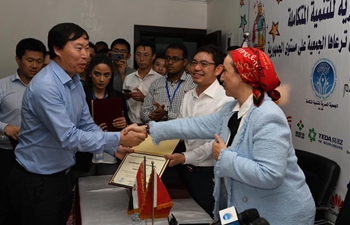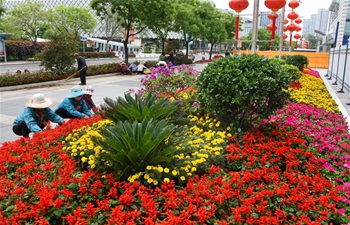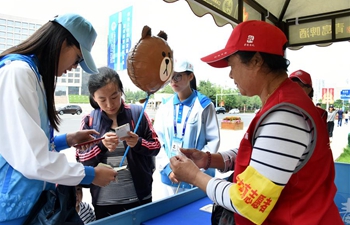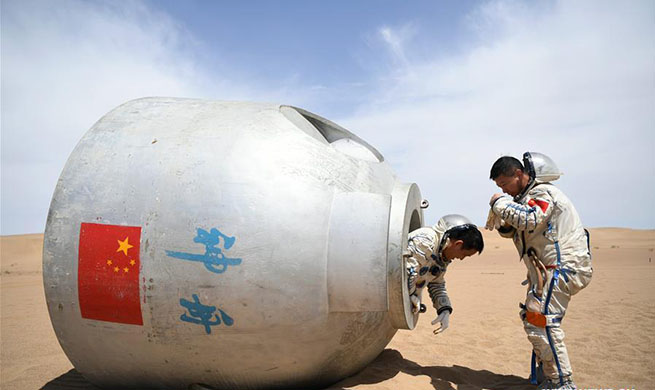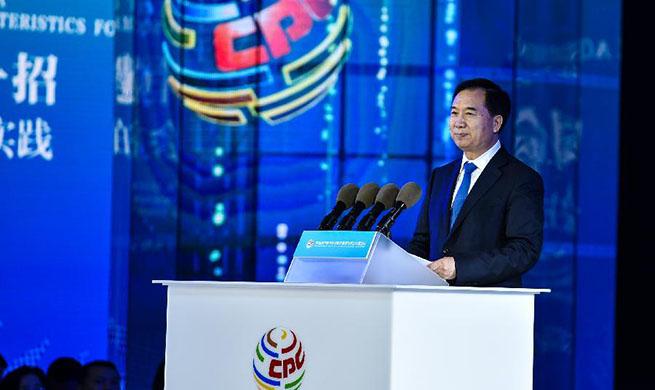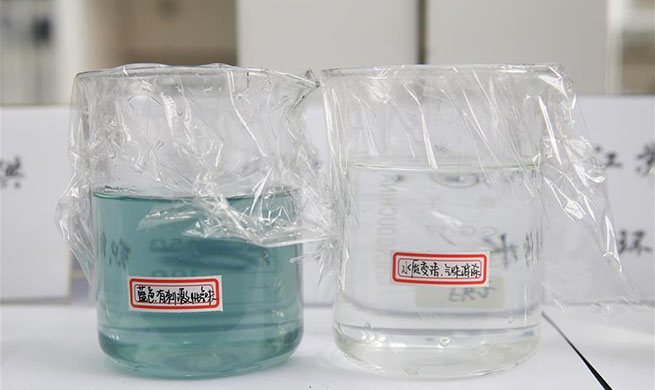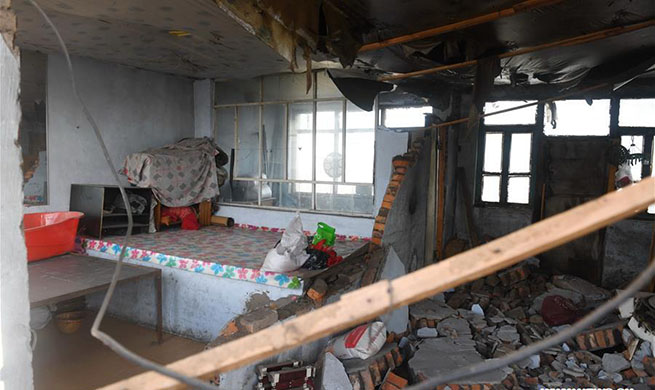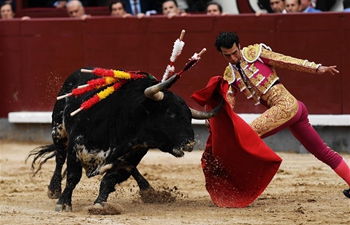DUBAI, May 27 (Xinhua) -- Various industry sectors of the Gulf state United Arab Emirates (UAE) started to take deliberate steps in order to bank on its neighbor's Saudi reform package Vision 2030 which is widely regarded as the biggest modernization scheme in the Middle East's modern history.
Earlier last week, NASDAQ Dubai, a licensed market of the banking free zone Dubai International Financial Center (DIFC), said it is preparing to launch equity futures on leading companies listed in Saudi Arabia.
"The futures will give investors new hedging tools to take long and short positions on the companies, at a time when international investor interest in the Saudi stock market is increasing rapidly," said NASDAQ Dubai on its website.
The National, Abu Dhabi daily, reported earlier in the day that analysts of Egypt's investment bank EFG Hermes expect Saudi Arabia to be lifted in June to "emerging market" status by global index developer MSCI.
This possible upgrade could trigger investment funds to increase their exposure in the Saudi Stock Exchange, or Tadawul, as increased global investment activities were also seen in the UAE when the Gulf state was upgraded by MSCI to "emerging market" from "frontier market" back in 2013.
"Saudi Arabia is making good progress in implementing its ambitious reform program under Vision 2030," said Tim Callen from the International Monetary Fund (IMF) who led a team that held discussions from May 2 to 14 with the Saudi government.
Callen added that the Saudi government "remains committed to wide-ranging economic and social reforms to transform the economy away from its traditional reliance on oil and to create a more dynamic private sector that creates jobs for the growing working-age population."
These prospects motivated Dubai's Dalma Capital earlier in the month to launch the first fund domiciled in the DIFC focused on investing in the Tadawul.
The listing of 5 percent of Saudi Aramco, which could become the biggest going public ever, will happen in 2019 instead of the end of this year as previously announced, according to Saudi Minister of Energy Khalid Al-Falih.
"Saudi Vision 2030 is definitely an opportunity for the DIFC, as since its inception in 2004, regional and global financial institutions have used the world class infrastructure and its legal environment as a gateway to do business in Saudi Arabia," said Essa Kazim, governor of the DIFC.
Over 622 regulated entities operate in the 120-acre DIFC district, making it the biggest regional financial free zone which abides to globally accepted regulatory standards, with the U. S. dollar as the official booking currency, instead of the UAE dirham.
Nevertheless, the UAE's interest in Vision 2030 is not dedicated to finance and banking alone.
After Saudi Arabia's Ministry of Culture and Information opened up the kingdom to movie theaters for the first time in 35 years, U.S. IMAX Corporation and VOX Cinemas, owned by Dubai's retail and entertainment group Majid Al Futtaim, announced on May 15 a sales agreement for at least four new IMAX theaters in Saudi Arabia.
VOX Cinemas was awarded its license to operate cinemas in the kingdom and plans to invest 2 billion Saudi riyal (533.3 million U.S. dollars) to open 600 screens in Saudi Arabia over the next five years.
Moreover, the UAE expects more Saudi nationals to travel to the UAE, also because the ban on Saudi women to drive vehicles will expire by the end of June as ordered by Saudi Crown Prince Mohammed Bin Salman who pledged to guide his country back to a "moderate" Islam.
Earlier in April, the Department of Culture and Tourism of the UAE capital Abu Dhabi led a delegation of hospitality partners for a city roadshow to Saudi Arabia, including the capital Riyadh, the eastern oil hub city of Dammam and other places along the east coast.
Meanwhile, Abu Dhabi National Oil Company (ADNOC), through its subsidiary ADNOC Distribution, the largest fuel and convenience retail firm in the UAE, has been awarded in mid-April a license to own and manage oil service stations across Saudi Arabia.
Supported by King Salman bin Abdulaziz Al Saud, the Saudi Vision 2030 was launched by Saudi Crown Prince Mohammed bin Salman in April 2016, aiming at seeking economic diversification to reduce the kingdom's traditional and nonproportional dependence on oil revenues.
"Considerable progress is being made to improve the business climate. Recent efforts have focused on the legal system and business licensing and regulation," said IMF's Callen.
The IMF expects Saudi real GDP to gain up to 1.7 percent in 2018, after a slight contraction last year, which marked the first time its real GDP shrank since 2009.
However, the UAE and Saudi Arabia, both keen on getting less dependent on oil revenues, received tailwinds from the oil market as the crude oil price fell back to the mid-70 dollars per barrel after Russia and Saudi Arabia signaled last Friday an increase in oil production. Before that, the price had hovered around a near four-year high in early May at above 80 dollars per barrel.
But Simon Williams, a HSBC's chief economist, said "there is no alternative" for Saudi Vision 2030. "'Corporate UAE' has started to take part in the Saudi reform process," he added.




